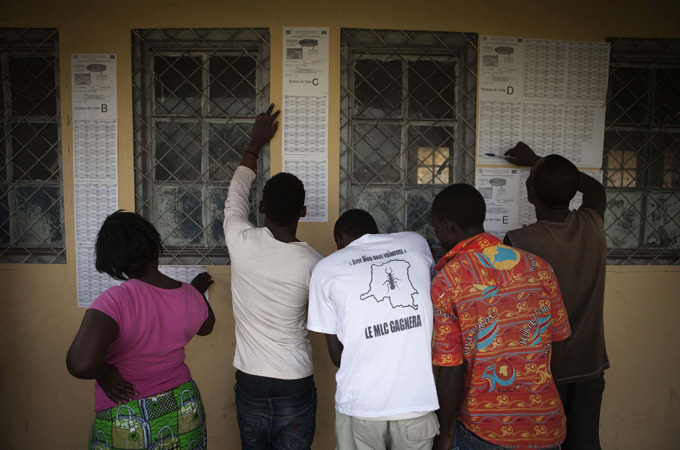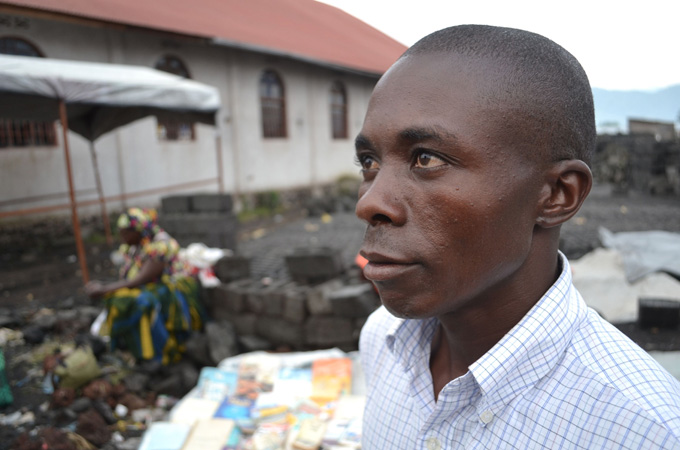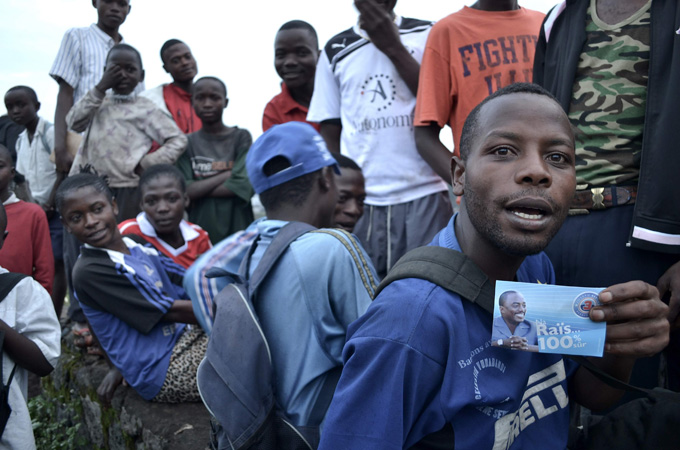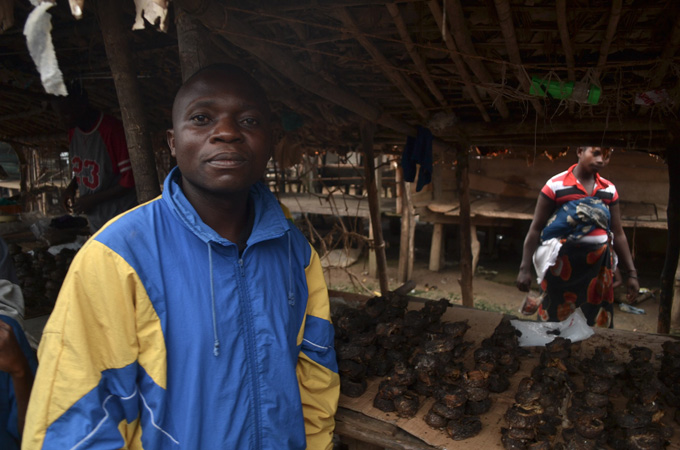DR Congo voters: What elections mean to us
Citizens in eastern DRC tell Al Jazeera why they are looking forward to national elections on November 28.

 |
| About 19,000 candidate are running for 500 legislative seats in DR Congo’s elections [Reuters} |
Goma, Democratic Republic of Congo – In the lead up to the Democratic Republic of Congo’s second general election since independence in 1960, most analysts have raised the alarm over poor logistical arrangements as well as significant security concerns, due to the continued presence of armed groups in the eastern parts of the country.
Nevertheless, many ordinary citizens of the DRC are looking forward to the elections.
For many, the elections offer a rare opportunity to play a role in who should govern the country, and direct the next phase of their fragile democracy’s development.
Al Jazeera’s Azad Essa speaks to residents of Goma and Walikale, both in the North Kivu province in the eastern DRC about why these elections means so much to them.
| Philemon Katsuva, 25 (medical student, Goma) |
 |
| Photo by Azad Essa/Al Jazeera |
First of all it is our right as a citizen to vote. This election could change our future and is a chance for the people to shift the social policy of this country.
I know that other African elections have gone wrong, but we Africans always get a sense that western powers or other international actors are interfering for their own goals, and this is why things usually do not improve.
Of course, ballots are sometimes interfered with and it is difficult to trust results.
When we voted in 2006, it was the first time for [many] of us, and we did not understand how the process worked. After this experience, we realise we have the tools and that it is time to change the government and I am hopeful that Mr [Vital] Kamerhe can challenge our current president [Joseph Kabila].
I am optimistic that Kamerhe [if he wins] can turn things around.
| John Kanyamwkenge, 24 (book vendor, Goma) |
 |
| Photo by Azad Essa/Al Jazeera |
I am very excited that these elections are taking place. I am excited at the prospect of choosing a new president and also because it reminds the current president that he cannot simply continue running the country.
As human beings, we need change. Consider this road … I am running my business here and we need this road to be fixed because there is too much dust and it affects my business. This is why we need these elections.
I voted in 2006, but I don’t see any change since then in Goma. There have been some improvements security-wise, but there have been no changes to the city. It’s time we found a new president.
And we need to vote, because we hope that the new president will bring the [necessary] change. [But] I can’t say who is going to win … the polls will tell us that.
| Lievein Muhima, 20 (mechanic, Goma) |
 |
| Photo by Azad Essa/Al Jazeera |
There have been changes and development in the country since Joseph Kabila became president. The war ended and there has been stability for some time.
Look around, roads are being rebuilt, there are now street lights along the roads – and there are a number of projects – like the one near the border – these are some of things that have happened. Look at the projects and developments in Kinshasa. Things have become better … even DRC’s football clubs are beginning to win competitions again.
The elections are important to me because if new jobs are created, I might be lucky enough to get one myself. I will be voting for our current president.
| Innocent Kabane, 23 (grocery shop owner, Walikale) |
 |
| Photo by Azad Essa/Al Jazeera |
I am working as a shop owner here, and there is a lot of insecurity in Walikale. The fighting happens in the forest but my business has been robbed, and the business is not doing well. I have owned this shop for three years now and I can say that when people do not have jobs, there are very few who can afford to buy anything.
This is a difficult country to live in, and I am looking forward to voting. Perhaps the new leaders will address unemployment and improve our lives.
It is good that it is up to the people to select the next leader and I am hopeful that it will be the right person.
| Slyvin Masemo, 37 (dried fish vendor, Walikale) |
 |
| Photo by Azad Essa/Al Jazeera |
Of course I am excited about the elections, because it is an obligation for every citizen to vote for the leader of this country.
From the first election [in 2006] up to now, there have been developments and changes. Security has since improved. And after these elections, we are hoping that our leaders will create employment for all of us in the DRC.
As leaders’ mandates come to an end, it is up to us to choose the next one. It is a case of trust … and I trust that they will unite the country peacefully. And yes, not many things have changed, but it was difficult to change so many things in just one term.
| Salamas Shafika, 51 (Food market co-ordinator, Walikale) |
 |
| Photo by Azad Essa/Al Jazeera |
I collect the daily rent from all of these vendors in this market. Every day, there are about 200-220 vendors selling beans, beef, wild animal meat (monkey), nuts, vegetables, dried fish and other food items. This market is 20 years old.
The elections in 2006 improved the number of goods in this market because goods could be transported from other villages, where so much of the food comes from, because security improved.
The market is thriving; it is busy. But when there are fights in the forests, goods don’t arrive. Items like onions and groundnuts come from villages that travel a distance to get here. This does not happen so often any more, but when it does, the market suffers.
If you look at this market, the stalls are made of wood and the roofs have leaves.
My dream would be to develop this market, build proper shelters, remove these leaves, and improve these roads, because when it rains, it is hard to walk and goods are damaged. This is what I want from these elections.